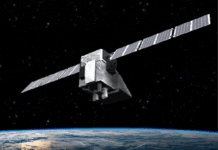
World science community reacts to US withdrawal from agreement
BY RYAN BUSHEY
President Trump recently declared he was unilaterally withdrawing the United States from the landmark Paris Climate Change Agreement, defying the vast majority of the scientific and business community.
The pledge— which includes 195 countries that have agreed to implement plans for reducing greenhouse gas emissions— was adopted in December 2015, and then made official when then-President Obama supplied written notice in a United Nations depository Nov 4, 2016.
During a press conference in the White House rose garden, President Trump argued the deal and its related costs were unfair to American workers. He added that he was open to negotiations for reentering the accord, but a joint statement from France, Germany, and Italy made it clear that would not be an option.
To withdraw, President Trump will have to give one year’s written notice to the U.N. depository. However, the agreement states that Trump cannot do this until three years after Obama supplied the last written notice, placing the U.S.’s official withdraw date from the Paris Agreement at Nov. 4, 2020 — one day after the next presidential election, according to the Washington Post.
Despite this official delay, Trump’s decision to withdraw has sparked significant reactions. Many in the environmental and scientific community have expressed their dismay with this decision. We rounded up a few of the notable ones below.
Ken Kimmell, president of Union of Concerned Scientists, former commissioner of the Massachusetts Department of Environmental Protection and chair of the Regional Greenhouse Gas Initiative:
“There’s no sugarcoating it: this is one of the most reckless and reprehensible decisions ever made by a U.S. president. However, there’s a lot we can do to mitigate the damage of this decision. States, cities, and businesses can continue to raise their ambition level. They should take full advantage of rapid technology advances and falling costs to reap the economic benefits of transitioning to a clean energy economy. President Trump can withdraw from the Paris Agreement, but he can’t defeat our nation’s commitment to leave our children and grandchildren with a habitable climate.”
Antonio J. Busalacchi, the president of the University Corporation for Atmospheric Research:
“Nations are amassing information about future climate conditions as a necessary precondition for competing in the global marketplace. Multinational corporations are seeking to mitigate their exposure to climate risks, and if they cannot get the needed information from U.S.-funded research they will go elsewhere to get the most authoritative information. U.S. rivals, including China, are conducting vigorous climate research projects that support their economic and military investments and expand their influence worldwide. Even if the United States no longer participates in climate agreements, it cannot afford to cede climate knowledge to overseas competitors.”
Carol Werner, Executive Director of the Environmental and Energy Study Institute:
“Withdrawing from the Paris Climate Agreement is analogous to ‘cutting off one’s nose to spite one’s face.’ Such action cedes global leadership to China and Europe, which are announcing their plans to jointly step up their roles. It also flies in the face of the many cities, states, and companies across the country that are committed to moving forward on clean energy, resilience and adaptation because that is what makes sense economically.”
Bob Perciasepe, President, Center for Climate and Energy Solutions:
It is profoundly disappointing that President Trump is ignoring the many U.S. business leaders – and the strong majority of Americans – who want the U.S. to stay in the Paris Agreement. By withdrawing the United States from the Paris Agreement, the president is not only damaging the global climate effort. He is shirking U.S. responsibilities, severely undermining U.S. interests, and putting U.S. companies at a competitive disadvantage.
Other countries are very unlikely to be interested in renegotiating the Paris Agreement or in negotiating an alternative agreement. But the United States still retains the right to adjust the terms of its participation in the Paris Agreement by revising its target. We encourage the president to keep that option on the table as he seeks a “fairer” deal.”
Bill McKibben, founder of 350.org and environmental studies professor at Middlebury College, writing in the New York Times:
“It amounts to a thorough repudiation of two of the civilizing forces on our planet: diplomacy and science. It undercuts our civilization’s chances of surviving global warming, but it also undercuts our civilization itself, since that civilization rests in large measure on those two forces.”
Natalie M. Mahowald, professor of atmospheric sciences and faculty director for the environment at the Atkinson Center for a Sustainable Future at Cornell:
“It is extremely unfortunate that the Trump administration could be stepping back from leading the world on climate change. Supporting the Paris agreement is a vote for supporting the high-tech renewable industries driving innovation in the U.S. private sector, and will spur more economic growth. If the U.S. backs off from new innovative technologies in favor of old-fashioned, dirty technologies like coal, it will fall behind its trade partners like China and Europe.
“Most countries and industry representatives, as well as the U.S. military, would like there to be more action on climate change, because climate change can cause so much damage from high temperatures, droughts and flooding. This is likely to cause more migration, political insecurity and less profits for companies.”
David Yarnold, the President and CEO of the Audubon Society:
“Scrapping the Paris climate agreement is an abdication of American leadership in the fight against the biggest threat facing people and birds.
Our kids and grandkids are the losers in this misguided decision. So are 314 species of birds that Audubon already knows are at risk because of climate change. We don’t believe that’s what Americans voted for in November.”
Michael MacCracken, Chief Scientists for Climate Change Programs, Climate Institute:
“The only silver lining to Trump’s dark recalcitrance is that it has strengthened the resolve of virtually all of the world’s other nations to take more and more aggressive actions to limit their emissions of climate-altering substances. Increasingly, these nations are seeing both the importance and benefits of moving forward technologically, not only in communications and industrial production as has been occurring, but also in getting energy from clean and renewable resources rather than from polluting and climate-changing sources.” — R&D Magazine















